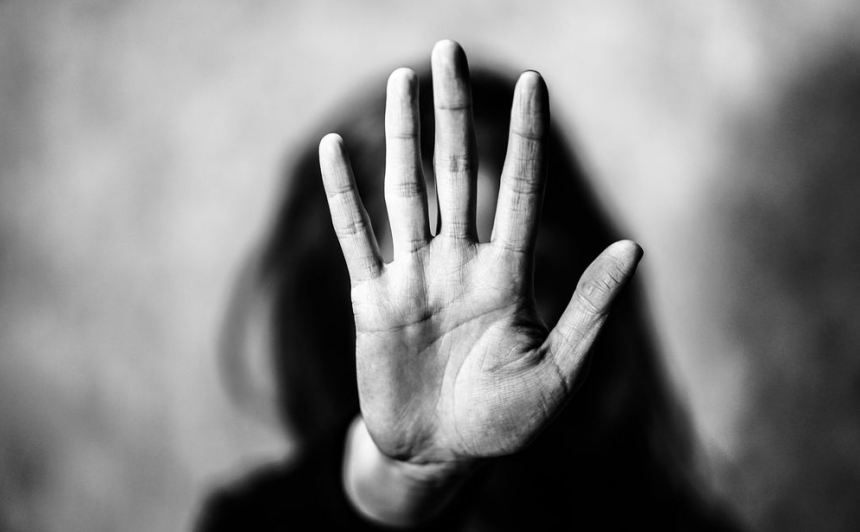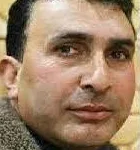Domestic violence, though pervasive globally, has taken an alarmingly unique trajectory in Kashmir. While the region is often celebrated for its natural beauty and cultural richness, the darker realities within many households remain hidden. Behind closed doors, countless women endure physical, emotional, and psychological abuse, their stories often silenced by a society that prioritizes family honor over individual dignity. In recent years, the issue of domestic violence in Kashmir has escalated, demanding urgent attention and action from all quarters of society.
The problem of domestic violence in Kashmir is deeply rooted in its patriarchal social fabric. For centuries, the societal structure has relegated women to subordinate positions, leaving them vulnerable to exploitation and mistreatment. The normalization of such behavior is further reinforced by cultural narratives that encourage women to endure and “adjust” for the sake of family cohesion. Even in cases of severe abuse, victims are often pressured into silence, their voices stifled by fears of stigma and social ostracization. This culture of silence has allowed domestic violence to proliferate unchecked, creating a vicious cycle that traps generations.
Many experts are of the opinion that decades political instability has inflicted immense psychological stress on individuals and families. The resulting economic uncertainties and prolonged exposure to terrorism have eroded the fabric of many households. Men, bearing the brunt of unemployment and societal pressures, often vent their frustrations within the confines of their homes. This volatile mix of external conflict and internal oppression has made domestic violence an almost inevitable by-product of the region’s broader turmoil.
The COVID-19 pandemic acted as a catalyst for an already dire situation. Lockdowns confined families to their homes, forcing victims of domestic violence into close proximity with their abusers for extended periods. Reports from local NGOs and helplines in Kashmir during this time revealed a significant spike in distress calls from women seeking help. Financial insecurity, exacerbated by job losses and economic slowdowns, further heightened tensions within households, often manifesting as physical or verbal abuse. The limited accessibility of support services during the pandemic left many women with no recourse, compounding their helplessness.
Another critical factor contributing to the rise of domestic violence in Kashmir is the lack of effective institutional mechanisms to address the problem. While the Protection of Women from Domestic Violence Act (PWDVA) was extended to Jammu and Kashmir in 2019, its implementation remains inadequate. Many victims are either unaware of their legal rights or reluctant to navigate a justice system that is often perceived as unresponsive and biased. Police officers, who are frequently the first point of contact for victims, may lack the training to handle such cases sensitively, discouraging women from seeking legal recourse. Moreover, the absence of sufficient shelters and counselling services leaves victims with few alternatives, forcing many to remain in abusive environments.
The impact of domestic violence in Kashmir extends beyond individual victims to affect the broader community. Children growing up in abusive households often bear the brunt of this trauma. Studies have shown that such environments can lead to long-term psychological damage, including anxiety, depression, and behavioural disorders. These children are at risk of perpetuating the cycle of violence, either as abusers or as victims in their own adult relationships. The mental health toll on women, too, is significant, with many survivors experiencing chronic anxiety, post-traumatic stress disorder (PTSD), and suicidal ideation. In a region where mental health services are already stretched thin, the lack of accessible support further exacerbates the crisis.
Despite these challenges, there are glimmers of hope in the form of grassroots efforts to combat domestic violence. Local NGOs, such as the Women’s Rights Trust and the Kashmir Women’s Collective, have been working tirelessly to provide support to survivors. These organizations offer counselling, legal aid, and safe spaces for women, often stepping in where the state apparatus falls short. Religious leaders, too, have begun addressing the issue from the pulpit, using their influence to challenge cultural norms that perpetuate violence and promote gender equality. Their efforts, though nascent, signal a growing recognition of the problem and a willingness to confront it.
The solutions to this crisis lie in a multifaceted approach that addresses its root causes while providing immediate relief to victims. Education plays a pivotal role in dismantling the patriarchal norms that enable domestic violence. By incorporating gender equality and respectful relationship education into school curricula, we can begin to instil these values in the next generation. Public awareness campaigns, led by community leaders and religious scholars, can challenge the stigma surrounding domestic violence and encourage victims to come forward.
Equally important is the need to strengthen the region’s institutional response. Law enforcement agencies must be trained to handle domestic violence cases with sensitivity and urgency. Fast-track courts dedicated to such cases can ensure swift justice, while increasing the number of shelters and support centers can provide victims with safe spaces to rebuild their lives. Economic empowerment is another crucial aspect, as financial independence can give women the means to escape abusive relationships. Vocational training programs and microfinance initiatives can help achieve this goal, particularly in rural areas where opportunities are limited.
Domestic violence in Kashmir is a complex issue that cannot be solved overnight. It requires the collective effort of society, from policymakers and law enforcement agencies to community leaders and individuals. Breaking the cycle of abuse will involve not only addressing its immediate symptoms but also tackling the systemic inequalities and cultural attitudes that allow it to persist. For too long, the issue has been relegated to the shadows, dismissed as a private matter unworthy of public attention. It is time for that to change.
The fight against domestic violence is not just about protecting women from harm; it is about building a society where every individual can live with dignity, free from fear and oppression. In the words of Mahatma Gandhi, “The measure of a civilization is how it treats its women.” By this measure, we have a long way to go. But with collective action and a commitment to change, a safer and more equitable Kashmir is within reach. It begins with breaking the silence, one voice at a time.
(Author hails from Achan Pulwama and has completed Masters in international politics at Aligarh Muslim University. Feedback: [email protected])








